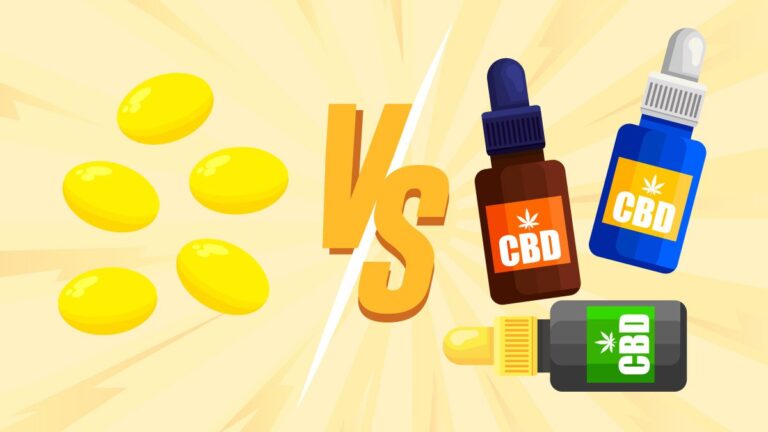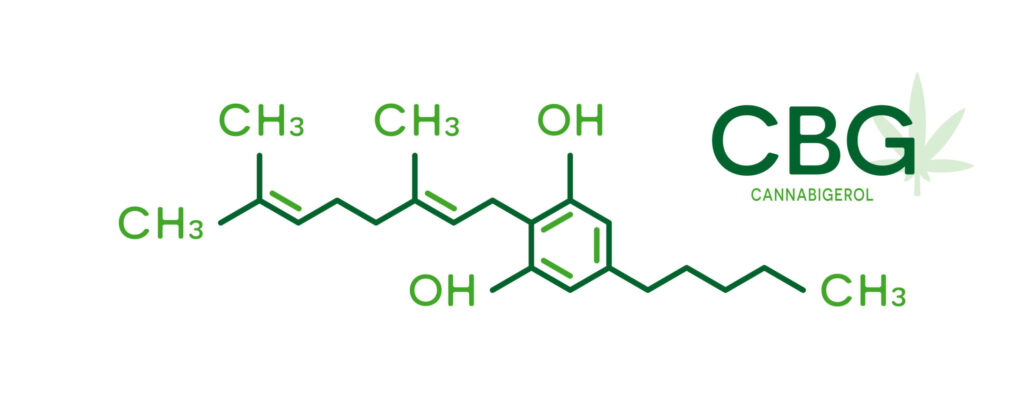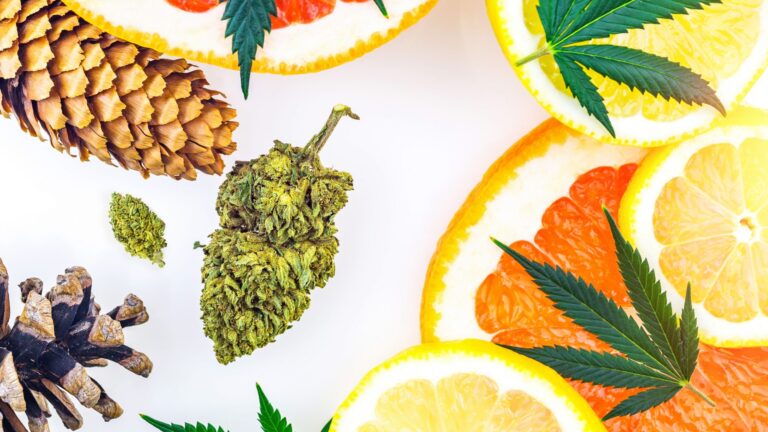
CBD, CBN, and CBG Power Parsing: Which Cannabinoid Triumphs for Pain and Anxiety Relief?
Cannabinoids, the remarkable compounds found in the cannabis plant, have sparked a wellness revolution due to their potential to alleviate pain and anxiety. Among the over 100 known cannabinoids, CBD (cannabidiol), CBN (cannabinol), and CBG (cannabigerol) stand out for their non-psychoactive or mildly psychoactive properties and promising therapeutic effects. This comprehensive guide explores the CBD CBN CBG difference, delves into CBN vs CBD for pain, CBD vs CBG vs CBN for anxiety, and answers the question, does CBN help with pain? Whether you’re seeking relief from chronic discomfort or stress, understanding CBN vs CBD vs CBG will empower you to make informed choices for your health.
What Are Cannabinoids?
Cannabinoids are chemical compounds in the Cannabis sativa plant that interact with the body’s endocannabinoid system (ECS), a network of receptors (CB1 and CB2) that regulates pain, mood, appetite, and immune function. CBD, CBN, and CBG are among the most studied for their potential to support wellness without the intense psychoactive effects of THC (tetrahydrocannabinol). Each cannabinoid has unique properties, making them suitable for different needs, from pain relief to anxiety management.
| Cannabinoid | Psychoactivity | Key Potential Benefits | Common Uses |
|---|---|---|---|
| CBD | Non-psychoactive | Pain relief, anxiety reduction, anti-inflammatory | Chronic pain, anxiety, insomnia |
| CBN | Mildly psychoactive | Sedation, pain relief, anti-inflammatory | Sleep disorders, pain-related insomnia |
| CBG | Non-psychoactive | Anti-inflammatory, pain relief, focus enhancement | Inflammatory pain, anxiety, mental clarity |
CBD: The Versatile Powerhouse
CBD, derived primarily from hemp, is the most well-known and researched cannabinoid. It’s non-psychoactive, making it widely accessible in products like oils, gummies, and creams. CBD interacts with the ECS to modulate pain and stress responses, earning it a reputation as a versatile wellness tool.
- Pain Relief: A 2018 review in Frontiers in Pharmacology found CBD effective for chronic pain, particularly neuropathic pain, by reducing inflammation and modulating pain pathways (Frontiers in Pharmacology).
- Anxiety Reduction: A 2015 study in Neurotherapeutics showed CBD’s potential to reduce anxiety in conditions like generalized anxiety disorder and PTSD by influencing serotonin receptors (Neurotherapeutics).
- Other Benefits: CBD is FDA-approved in Epidiolex for severe epilepsy and is studied for insomnia and inflammation.

Why Choose CBD? Its extensive research and non-intoxicating nature make it ideal for those seeking broad-spectrum relief.
CBN: The Sleep-Supporting Specialist
CBN forms when THC degrades, often found in aged cannabis. It’s mildly psychoactive but far less potent than THC, making it suitable for those avoiding strong psychoactive effects. CBN is less common than CBD and is typically derived through chemical conversion, limiting its availability.
- Pain Relief: Early research suggests CBN may reduce pain, particularly when combined with CBD. Its sedative effects make it especially useful for pain that disrupts sleep, as noted by Emerald Bay Extracts (Emerald Bay Extracts).
- Sleep Support: CBN is marketed for its calming, sedative-like effects, potentially aiding sleep disorders. This makes it a candidate for those with pain or anxiety affecting rest.
- Anti-inflammatory: Limited studies indicate CBN may have anti-inflammatory properties, though more research is needed.

Why Choose CBN? Its potential as a sleep aid sets it apart, especially for nighttime pain or anxiety relief.
CBG: The Emerging Star
CBG, known as the “mother of all cannabinoids,” is the precursor to CBD, THC, and other cannabinoids. It’s non-psychoactive and less abundant in cannabis, making it more expensive to produce. CBG is gaining attention for its unique properties, particularly in pain and anxiety management.
- Pain Relief: CBG may act as a GABA reuptake inhibitor, potentially aiding neuropathic and inflammatory pain, such as in arthritis, according to Remedy Pain Solutions (Remedy Pain Solutions).
- Anxiety and Focus: CBG may promote mental clarity and calm, making it suitable for daytime use. Its anxiolytic effects are less studied but promising, as noted by Neurogan (Neurogan).
- Other Benefits: CBG shows potential for neuroprotection, antibacterial effects, and reducing intraocular pressure in glaucoma.

Why Choose CBG? Its energizing effects make it ideal for daytime pain relief and focus enhancement.
CBN vs CBD for Pain
When comparing CBN vs CBD for pain, each has distinct strengths:
- CBD: Backed by robust research, CBD is effective for chronic pain, including arthritis and neuropathy, due to its anti-inflammatory and analgesic properties.
- CBN: Less studied, CBN may be better for pain that interferes with sleep due to its sedative effects. Combining CBN with CBD could enhance pain relief, especially for nighttime use, as suggested by Emerald Bay Extracts.
While CBD is the go-to for general pain management, CBN may be more suitable for sleep-related pain issues. More human studies are needed to confirm CBN’s efficacy.
CBD vs CBG vs CBN for Anxiety
For CBD vs CBG vs CBN for anxiety, CBD leads due to its extensive research:
- CBD: A 2015 Neurotherapeutics study found CBD effective for anxiety disorders, likely due to its interaction with serotonin receptors. It’s the most reliable option for stress management.
- CBN: While not directly linked to anxiety relief, CBN’s sedative effects may indirectly help by improving sleep, which can reduce anxiety, as noted by Neurogan.
- CBG: CBG’s potential anxiolytic effects and ability to enhance focus make it a candidate for daytime anxiety relief. Its role as a GABA reuptake inhibitor may contribute to calming effects, though research is preliminary.
CBD is the most evidence-based choice for anxiety, but CBG could be a good alternative for non-sedative relief, and CBN may help with anxiety-related sleep issues.
The Entourage Effect: Combining CBD, CBN, and CBG
The “entourage effect” suggests that combining cannabinoids can enhance their benefits. For example:
- CBD + CBN: Ideal for anxiety that disrupts sleep, as CBD reduces stress while CBN promotes relaxation, per Forbes Health (Forbes Health).
- CBD + CBG: May enhance pain relief by combining CBD’s analgesic properties with CBG’s anti-inflammatory effects.
- CBN + CBG: Could balance sedation (CBN) with energy and focus (CBG) for tailored relief.
Products combining CBD CBN CBG are increasingly available, allowing users to leverage this synergy.
Choosing the Right Cannabinoid

Selecting between CBG CBN, CBD CBN CBG, or individual cannabinoids depends on your needs:
- CBD: Best for versatile pain and anxiety relief, backed by extensive research.
- CBN: Suited for nighttime use, especially for pain or anxiety affecting sleep.
- CBG: Ideal for daytime use, potentially aiding inflammatory pain and anxiety with focus-enhancing effects.
Dr. Adam Perlman, an integrative medicine expert, notes that CBD and CBN are often combined for sleep, while CBG’s unique properties are still being explored (Forbes Health). Start with low doses and consult a healthcare professional to find the best fit.
Legal and Safety Considerations
CBD is widely legal when derived from hemp with less than 0.3% THC, but CBN and CBG’s legal status varies by region. Always check local laws before purchasing. Potential side effects include dry mouth, drowsiness, or interactions with medications like blood thinners (Dad Grass Dad Grass). Consult a healthcare provider, especially if you have underlying conditions or take other medications.
Write at the End
CBD, CBN, and CBG offer unique potential for managing pain and anxiety, with CBD leading due to its extensive research, CBN excelling for sleep-related issues, and CBG emerging for inflammation and focus. While promising, the limited research on CBN and CBG calls for cautious optimism. By understanding the CBD CBN CBG difference and considering your specific needs, you can make informed choices to enhance your wellness. Always consult a healthcare provider to ensure safe and effective use.


